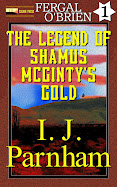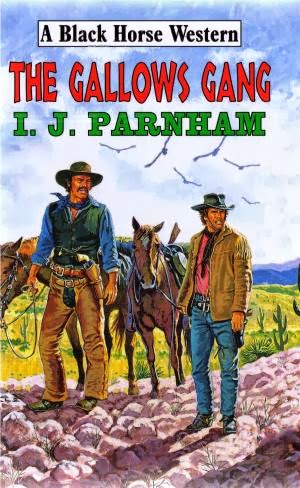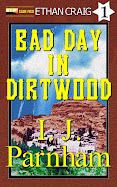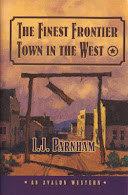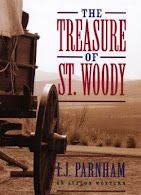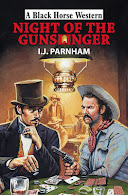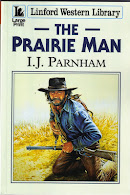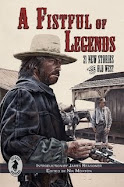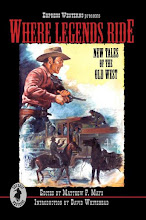Demons was the 44th movie length episode of Dalziel and Pascoe. The previous 43 featured a bluff Yorkshire cop solving routine murders in the small mining town of Wetherton while scratching his nuts and trading insults with his partner. The makers of Demons somehow missed the previous eleven years of the show and they appeared to be under the impression they'd been hired to remake Cannibal Holocaust, except with a bigger budget and more gore. The result is a movie that starts off as a cozy Murder She Wrote type tale develops into Silence of the Lambs, takes a detour through the more surreal corners of Twin Peaks and ends up having a shot at Night of the Living Dead.
For such a delirious story, the episode starts quietly to lull the viewer into a false sense of security. A man blasts his wife in two with a sawn-off shotgun, with the crime being reported while Pascoe is celebrating his birthday with his best friends, which means he hasn’t invited Dalziel. For the next twenty minutes Pascoe devotes little time to the murder as he tries to stop Dalziel finding out about the party leading to the feeling that this episode will feature the usual D&P mixture of blokey friction and cop procedural. Then Richard E. Grant appears and everything spirals out of control. From that moment on, every time you think the plot can’t get any more bizarre, it promptly wrongfoots you with yet another jaw-dropping twist.
The story, as best as I can piece it together, goes like this: Wetherton's leading hypnotherapist, who is a devil worshipper specialising in curing smoking, was dumped by her boyfriend 20 years ago while at university. This ex-boyfriend, played by Grant, is now a famous tv magician, while she's stuck in Wetherton having to cope with the indignity of being only a beautiful, glamorous, rich, successful businesswoman living in a mansion. After a nervous breakdown, experimental drugs give her a psychological condition with a long name that makes her plot revenge against Grant. And so she comes up with a cunning plan to commit the perfect murder. She tracks down a secret medieval grimoire (as Pascoe says in one of the many quotable lines - you don’t get to see many grimoires in Wetherton) that was written back in the days when witches were real witches and which includes a forbidden text to contact the dark side. This text calls for her to roam around Wetherton armed with a blood-soaked chainsaw dismembering people. She collects a body part from each victim. Then she plans to stitch the body parts together and reanimate the corpse. When she reads the forbidden text, her soul will transfer into the creation and turn her into a demon. Then she can kill Grant.
Fans of the cozy cop show genre will already have spotted that this plan has a small flaw: it's just too simple. So to complicate things she tracks down a man who took part in a trick on Grant's tv show. In this trick Grant hypnotised the man and made him shoot his wife with a toy gun he thought was real. Strangely, this hasn't affected their marriage because the couple are the leaders of Wetherton's second most popular white-collar devil-worshipping cult and they enjoy that sort of thing. The killer hypnotises him again, but this time she makes him shoot his wife for real. This has two results. It fools Dalziel into thinking that Grant's original hypnotic suggestion caused the murder, and it incurs the wroth of the devil worshippers who plot their own revenge against Grant. The devil worshippers are a fun bunch with suicidal goths, several embezzlers (although that plot strand mysteriously disappears) and a great bloke who speaks only in Latin and who keeps his embalmed wife in a glass case in the living room. He's a bit of nutter that one, Dalziel decides.
Although to the untrained eye the devil worshippers just like getting naked and chanting, they cast a spell that actually works and it turns off the lights in Grant's house, which spooks him so much he hides in the middle of a runic pentangle made with luminous paint. With the killer's plan working she steps up the psychological warfare by systematically chainsawing to bits the devil worshippers who are ruining her nemesis's life, on the basis that this will make Dalziel think Grant is killing them.
This leads to a classic scene in which Dalziel and Pascoe stand in the middle of a murder scene that looks like a slaughterhouse and quiz a camp pathologist, who appears to be channelling Larry Grayson, about how the victim died. The camp pathologist reports that the victim was electrocuted, drugged, had a massive dose of mercury injected into her eyes and brain. Her lungs and heart were removed and runes carved into her body. Her spinal column was cut out and she was sliced in half with a chainsaw. But that's not what killed her. She actually died from being injected with an overdose of top secret breathable water specially imported from America. The cops debate if they know of anyone in Wetherton who has been importing top secret breathable water from America recently and it turns out that Grant has been doing just that to use in his act. Grant is a master of illusion and his big trick is to 'drown' himself in a vat of water while hiding the fact that the water isn't really water but is actually breathable water. Dalziel deems this trick to be bollocks and arrests him (Dalziel's reaction to just about everything in this episode is bollocks and I can’t blame him.).
Things are looking bad for Grant. But with every scrap of evidence pointing to him being the crazed chainsaw killer, the real killer makes Dalziel release him by manipulating Grant into planting a post-hypnotic suggestion in Dalziel's mind to follow the station's new health and safety procedures and give up smoking. This makes Dalziel seek out Wetherton's leading smoking hypnotherapist, the crazed psychokiller herself.
While curing him of his smoking habit, the killer takes over Dalziel's dreams and makes him dream of incorrect solutions to the murder mystery that leads him back to the devil worshippers. The cops arrive at their coven just as the devil worshippers are having another go at turning off Grant's electricity. Their spell goes awry (I think the killer swapped grimoires, but I'm not sure) and it makes one of the members turn into a zombie with massive glowing eyeballs. Dalziel calls for an ambulance and in other classic scene where you wonder how the actors kept straight faces he quizzes a nurse as to whether she's seen many zombies with massive glowing eyeballs in Wetherton. And it turns out she has. It's quite a common medical condition in fact called anti-hysterical metabolic syndrome in which the accepted cure is a dose of prescription drugs and the only side effect is that the victim is left paralysed and blind even though they can move and see. It's at this point that the story gets seriously strange.
I could describe what happens next, but as I have no idea what was going on, I probably shouldn’t try. Ever more gruesome body parts turn up, bloody chainsaws whirr, Dalziel drives along in the day time, gets out of his car in the dark and then walks along in daylight. He has dreams and then dreams within dreams about things that have happened, things that didn’t happen, and things that will happen or then again perhaps not while the surviving devil worshipper has naked fun on his own. In the end Dalziel gets so confused he gives up and goes down the pub. Grant arrives and promises to solve the crime. Pascoe refuses, but then Grant proves how clever he is by reading his mind and then giving him the names of several characters who left the show about five years ago. Pascoe is so impressed he lets Grant lead the investigation - I think the makers put that in to prove they had watched the show before. It didn’t work.
Grant's technique for solving the crime involves sitting in his glowing pentangle and waiting for the murderer to phone up and confess while his new girlfriend seeks the truth with tarot cards that all have death written on them. Amazingly this works when the killer sends him a video showing him where to find her. Grant heads off into Wetherton's darkest wood at midnight where he finds fires forming a circle, runic symbols and lots of body bits. He phones up Dalziel and tells him he's cracked the case, but by then it’s too late.
The killer leaps out from behind a tree and whips off her disguise of a dark wig, which is perhaps the most inexplicable event in the whole episode as she hasn't worn a disguise before. She then delivers the immortal line, 'twenty years ago you refused to give me you hand, and so now I'll take your head, your head, your head, mwhahaha!' She gives Grant the chainsaw treatment, stitches up her patchwork body creation, and then tries to turn into a demon. Sadly she fails and when the cops arrive she's a broken woman, gibbering and foaming at the mouth.
The cops decide that when her stitched-up corpse failed to re-animate and help her take on demonic form, the trauma was too great and it completely unhinged her mind. Everyone agrees and they wander off to get ready for next week's case (which incidentally involves Wetherton's leading maverick bio-chemist who has discovered the secret of eternal life. This involves injecting nanobots into the small titanium molecules in zinc sun cream, except there's a catch that if the nanobots get into the large titanium molecules your skin explodes, so she decides to become a serial killer specialising in animal activists.)
In an episode as excellent as this one, it's churlish to find fault, but I must admit I was disappointed that there wasn't a Night of the Demon type ending, but that would have made the show perfect and having small flaws to pick at makes it more enjoyable. There's also the strange fact that the dvd version cuts out the original twist ending in which it's revealed that in reality the killer was innocent all along. Every event in the whole episode was an elaborate illusion designed to hide the truth that she was being manipulated with tarot cards by Grant's girlfriend, who is the leader of Wetherton's third largest devil worshipping cult. Oh, and during the zombie with massive glowing eyeballs scene my wife pointed out that Dalziel's plan to get the Charity Commission to investigate the devil worshippers was doomed to fail. Apparently, the financial irregularities committed by the latin-speaking zombie with the embalmed wife in his living room weren't severe enough to warrant a special audit. But that's always the way, writers who aren't careful with their research are destined to be let down by the small things.
Anyhow, shortly after the demon episode, the eternal life episode and the really weird one where Pascoe starts killing off suspects, the BBC cancelled the show, and to this day I have no idea why.



